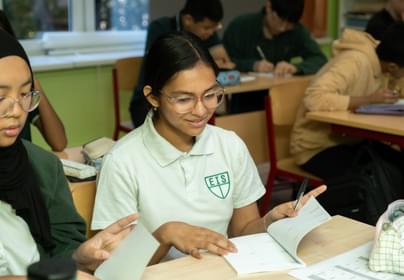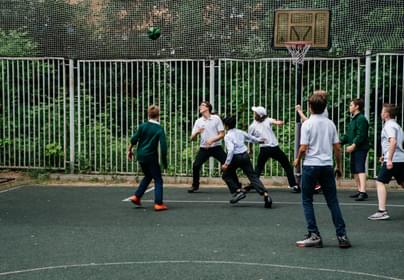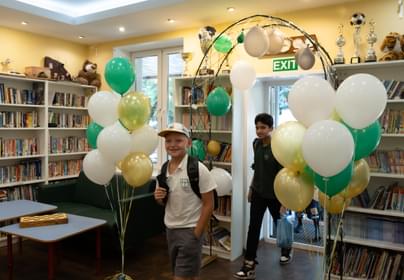NEW HUMANITIES TEACHER - Mr. Sean McDonnell
After graduating from the University of Warwick in the UK with an MA in History, Sean went on to complete his PGCE from the University of Ulster. He taught for a number of years in Northern Ireland before moving abroad and now has 10 years of international experience, having previously worked in Serbia, Gran Canaria, China and Armenia. His main areas of historical interest are 19th and 20th Century Chinese history and the Cold War in Asia. Sean is also a keen art historian and spent most of his undergraduate degree studying various aspects of art history and he is currently studying for an MA in Art History with the Open University.
Outside of the classroom, Sean takes a keen interest in the Model United Nations and has helped organise many large delegations to numerous prestigious conferences throughout Europe and Asia.
HUMANITIES
Year 7 History
Year 7 are beginning to consider the importance of religion in Medieval Europe. Initially, this will be covered by an investigation into the Crusades and, so far, we have thought about reasons people had to go on Crusade as well as a brief introduction to the Byzantine Empire and the problems they faced.
Year 8 Geography
Year 8 are looking at various aspects of human and physical geography through the experiences of a range of famous explorers. So far, they have explored various aspects of adventure into the Amazon Rainforest and the Himalayan mountain range.
Year 9 History
Year 9 have begun an investigation into life in Nazi Germany. So far, we have considered reasons people had for supporting the party and begun to study the methods that the Nazi’s used to control the population, such as the use of propaganda.
Year 9 Geography
Year 9 are currently studying issues surrounding economic and social development. So far, we have considered how development can be defined and measured. After a broader appreciation of the Millennium and Sustainable Development Goals, Year 9 will consider how these issues can be applied to a range of countries.
Year 11 History
Year 11 have finished the unit ‘What methods did Stalin use to control the Soviet Union?’ and have begun their investigation of the final unit of the Depth Study; How complete was Stalin’s control over the Soviet Union by 1941? After studying the various aspects of the Five-Year Plans, they will continue to focus on important preparation for their IGCSE examinations.
Year 12 History
Year 12 are continuing their study of Modern Europe, 1789–1917 and have been introduced to their next topic, The Russian Revolution, c.1894–1917. This week they have studied opposition to the Tsarist regime, the 1905 Revolution and the era of the Dumas.
DRAMA
The students in Drama have been working very hard, to complete the filming portion of their Film Projects for Drama and PSHE. Everyone has been pulling together to complete the scenes, finalise any changes to scripts and put the finishing touches on their projects. Next week is the final week for filming and everyone has been working together which has been great to see. We are looking forward to the final projects from each year group.
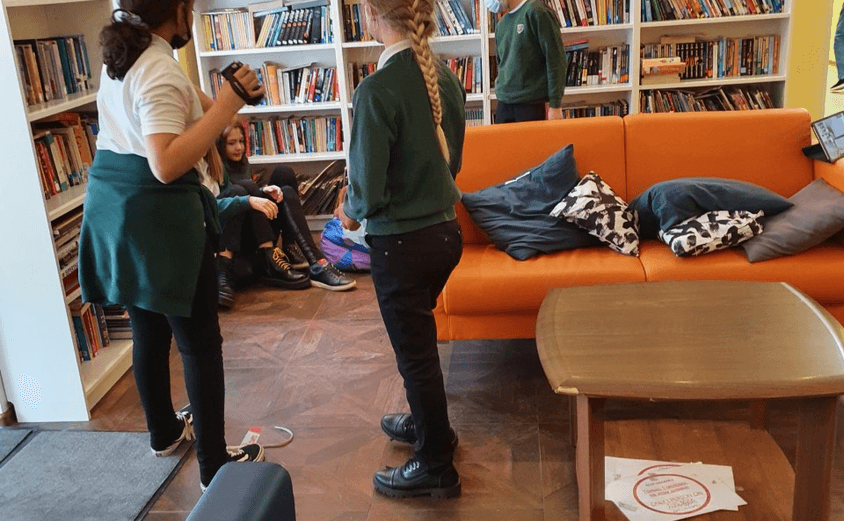
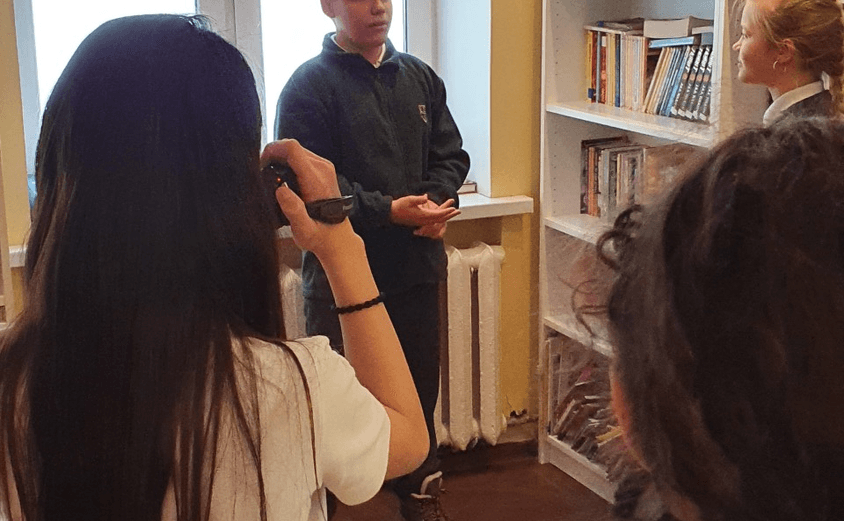
ART
Such imagination! Year 9 have worked really hard to develop their designs in response to the Street Art project. Students had to use their line and tonal, drawing skills to show the shape and form of these constructed creatures and in some cases other worlds.
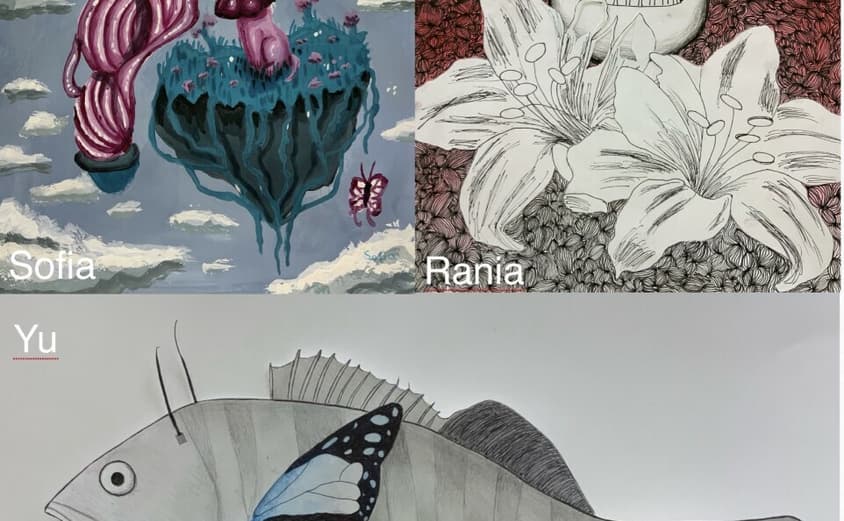
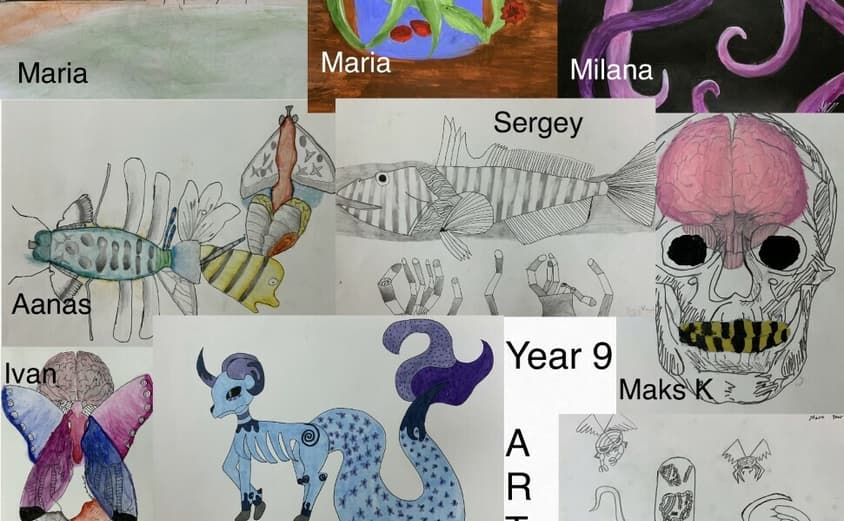
MATH
Year 9 students learnt about stem and leaf plots, correlation and different types of correlation between two sets of data. At the end of the week they had a topic test with a class average score being 75%!
Year 11 students started a topic on solving liner and quadratic equations graphically.
Year 12s learnt about equation of the circle and how to solve questions in coordinate geometry in the (x,y) plane.
Year 13 students started Moments chapter in Mechanics unit and continued with splitting algebraic fractions and finding coefficients by substitution in Pure Maths component of the course showing great progress in both units.
RUSSIAN NATIVE
The year 8 continued with the unit "Lexis". Students worked on the essay using different types of vocabulary and idioms and have shown a lot of improvement in their language skills. We also played a game called Kahoot. It was so much fun!
Well done to Y10 students! They have put a lot effort into their Narrative/Discursive essay, which we practise for the IGCSE exam. After a class discussion, the students chose the best essay. The winner was Milena with her story about an incredible archaeological artifact. Second place went to Vika, who described the Korean fair in great detail. I am very impressed with your essays. Keep it up!
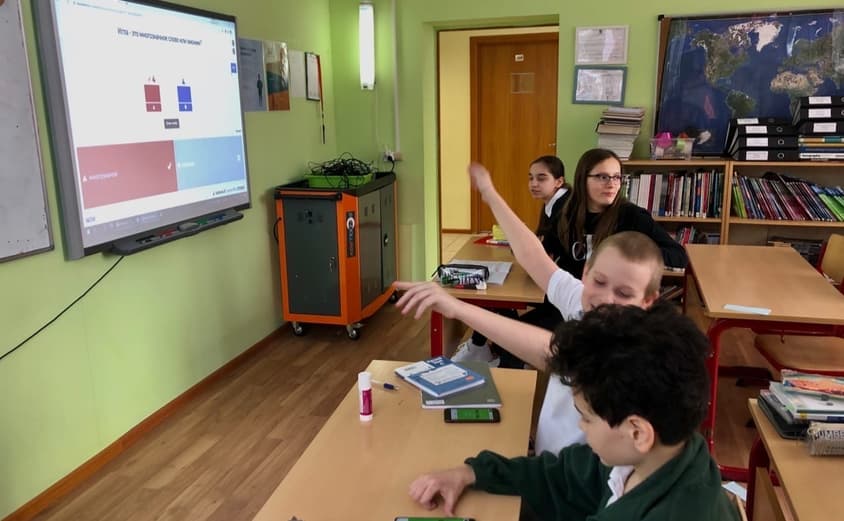
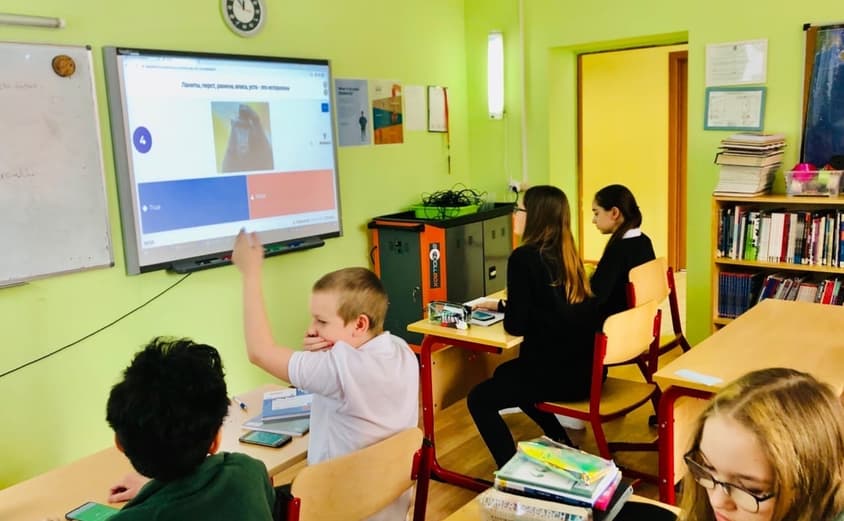
FRENCH
In secondary, in year 7,8 and 9 and 10, we studied a new topic : the ordinals numbers. We studied how to write correctly the ordinals numbers. First, we learnt the general rule : write a cardinal number and add "ième". However, it was not so easy. There are always exeptions and particulars cases. To be really independant in this topic, we studied the exeptions : how to write "cinquième" "neuvième", "quatrième" etc. To make the work easier, we used colours and we coloured cubes according to their positions. Morevover, we studied a document about the numbers and how to use it in the daily life. Year 9 had a test about topics that we already studied : numbers, animals, calendar, daily routine. The others sections 7, 8 and 10 will have to do the test next weekThe students in Year 10, studied also the ordinal numbers and began a new topic, the house. It was not only the vocabulary of a house but also make sentences to describe the house, understand the sentences, work on a document to make links between pictures and descriptions.
ICT
This week in ICT year 11 were excited to learn about how to use various functions when creating spreadsheets using MS Excel. This included calculating the average, minimum, maximum and count. Year 7 were continuing creating there logo and leaflet in MS Publisher to advertise a theme park which they enjoyed and becoming more familiar with MS Publisher. Moreover Year 9 were setting up a database, importing data into a database and creating and using forms to enter new data this had been done using MS Access.
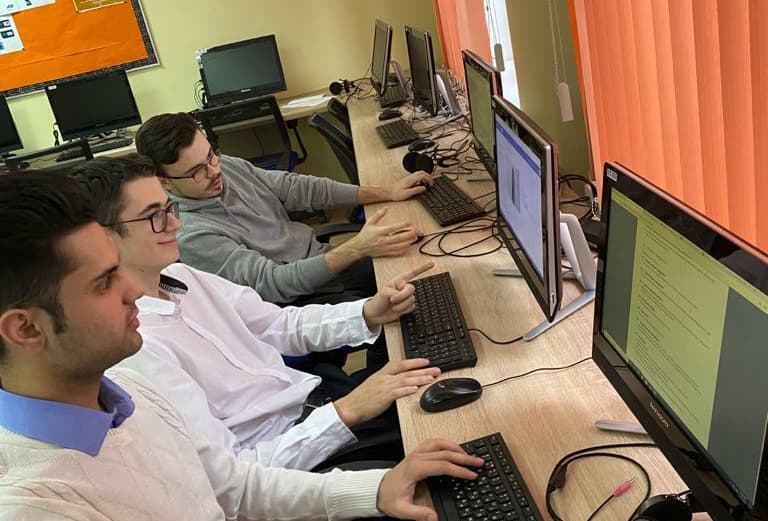
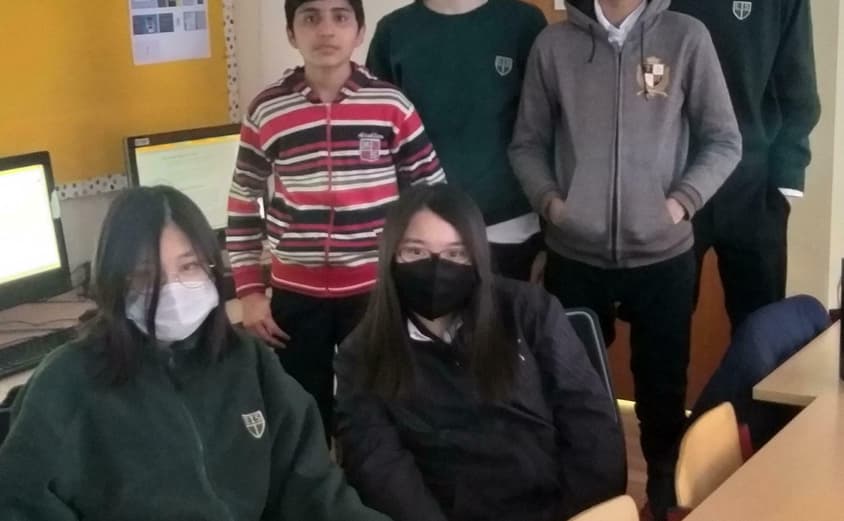
SCIENCE
Year 10 studied mixtures and the methods which are used to separate them. We discussed recrystallisation, filtration, distillation, evaporation and paper chromatography. They could see the difference between simple and fractional distillation and they were able to distinguish between the terms such as solute, solvent, solution, miscible. They also got the idea of what kind of equipment is used for each method. The students carried out an experiment to separate the colours of felt-tip pens using paper chromatography. Well done, Year 10 students!
Year 11 started Organic Chemistry this week. We talked about the main element of all organic compounds - carbon - and the students were introduced two families of organic substances: alkanes and alkenes. We talked about various types of formulae which are used to represent an organic molecule: displayed, structural, skeletal and general formulae. We had a great activity with moly mods when the students made models of some organic molecules. Well done everyone
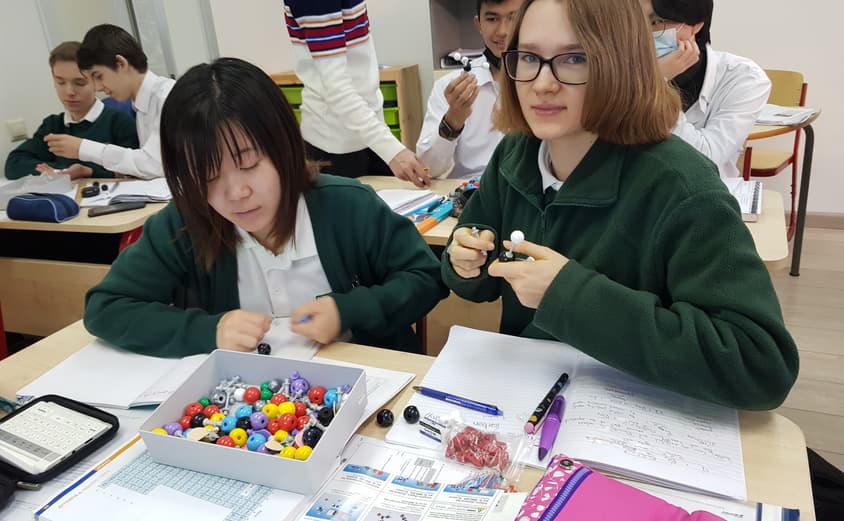
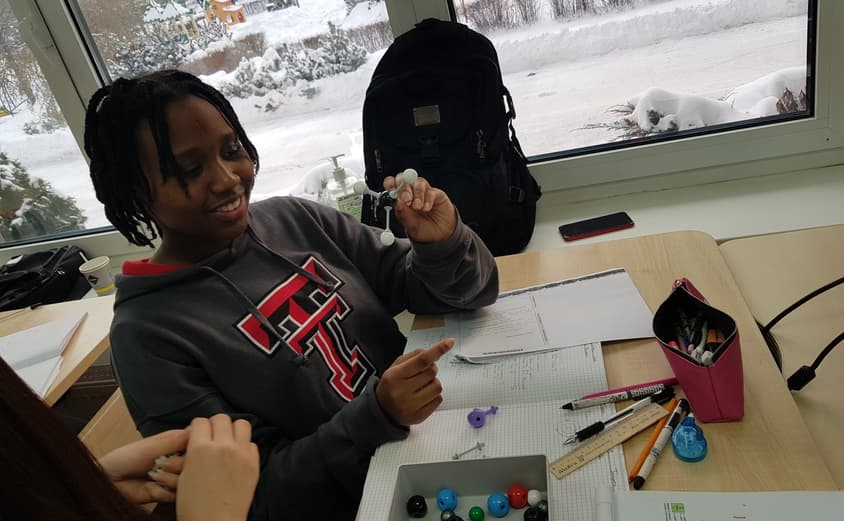
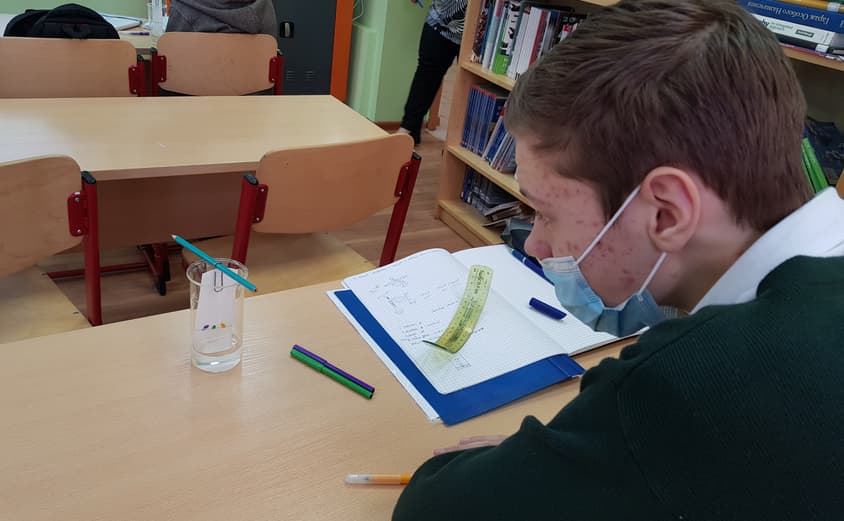
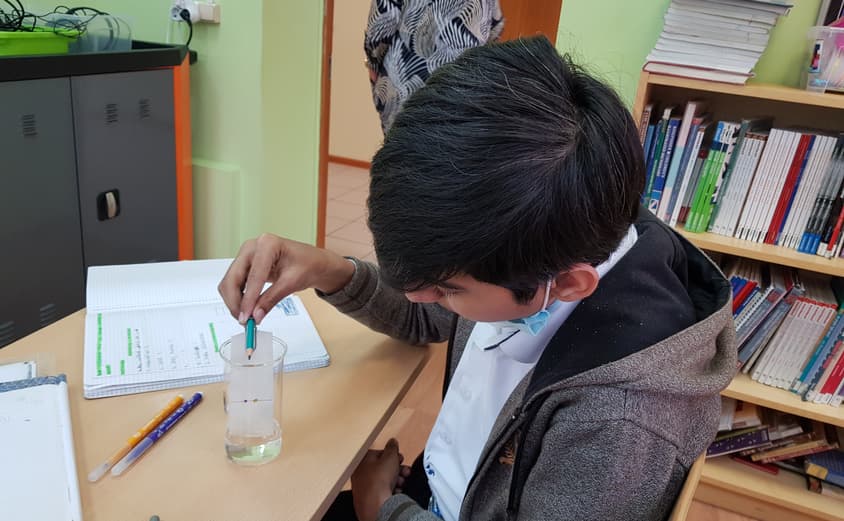
ENGLISH
This week year 8 have been working on creative writing and learning various techniques which they will incorporate into their own narrative writing. They have been learning how to 'show' the reader through description rather than 'tell' the reader as well as learning how to craft similes and metaphors. Year 9 have continued with their study of 'Blood Brothers' and have responded to feedback on an essay they wrote which examined how social class is explored in the play. The standard of essays produced by year 9 was extremely impressive and bodes very well for their GCSE years. Year 10 have looked at the conventions of dystopian fiction whilst year 11 have been working really hard on their mock exam feedback. Year 12 have continued their study of Arthur Miller's 'Death of a Salesman' looking at the characteristics of a tragic hero. Year 13 have been planning essay responses to various exam questions on 'Great Expectations'.
MUSIC
In Secondary school we have "I Have Got Rhythm" topic with Year 7 . Students have explored the difference between beat and rhythm. They have been created their own rhythms pattern. Year 8 have been learning about "Soundtrack" and Year 9 have finished with "Minimalism Music''.

